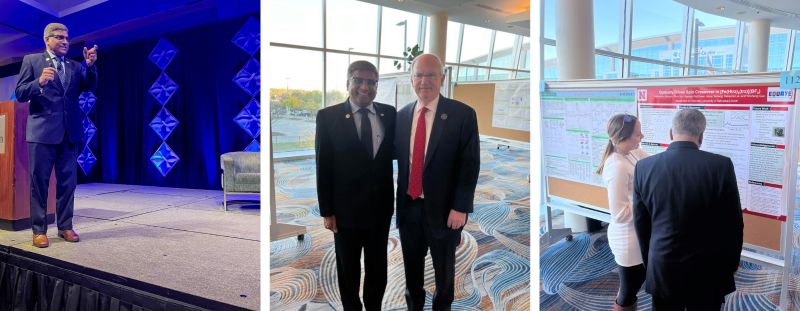This week, Director Sethuraman Panchanathan underscored the progress and accomplishments that NSF investments are having on innovation and research.
The director traveled to Omaha, Nebraska, to attend the 28th NSF Established Program to Stimulate Competitive Research (NSF EPSCoR) National Conference hosted by the University of Nebraska at Omaha. Panchanathan met with University of Nebraska System President Jeffrey Gold and delivered a keynote speech highlighting NSF EPSCoR's transformative impact in creating an inclusive research ecosystem in the United States. The director emphasized EPSCoR's vital role in response to the "Chips and Science Act of 2022," which set targets for investments to advance innovative ideas in STEM and rapidly translate them into solutions.

The EPSCoR program supports NSF's overall goal of promoting the progress of scientific development. EPSCoR continues to evolve and adapt to fuel discoveries by building research infrastructures, fostering innovation and enhancing collaboration in jurisdictions that have not always been represented before in the research landscape.
Later in the week, the director met with Brian Schmidt, a Nobel Prize laureate in physics who NSF has supported, and delegates from the Embassy of Australia representing the Australian National University and the Commonwealth Scientific and Industrial Research Organization. The group discussed opportunities to enhance collaborative research between NSF and Australia, strengthening NSF's international partnerships.
Additionally, the director recognized the success of the NSF-led National Artificial Intelligence Research Resource (NAIRR) Pilot since its inception in January 2024. The NSF-led NAIRR pilot continues to bring cutting-edge AI resources to researchers and educators across the United States. As AI impacts the nation, the nation must have an opportunity to impact AI.






